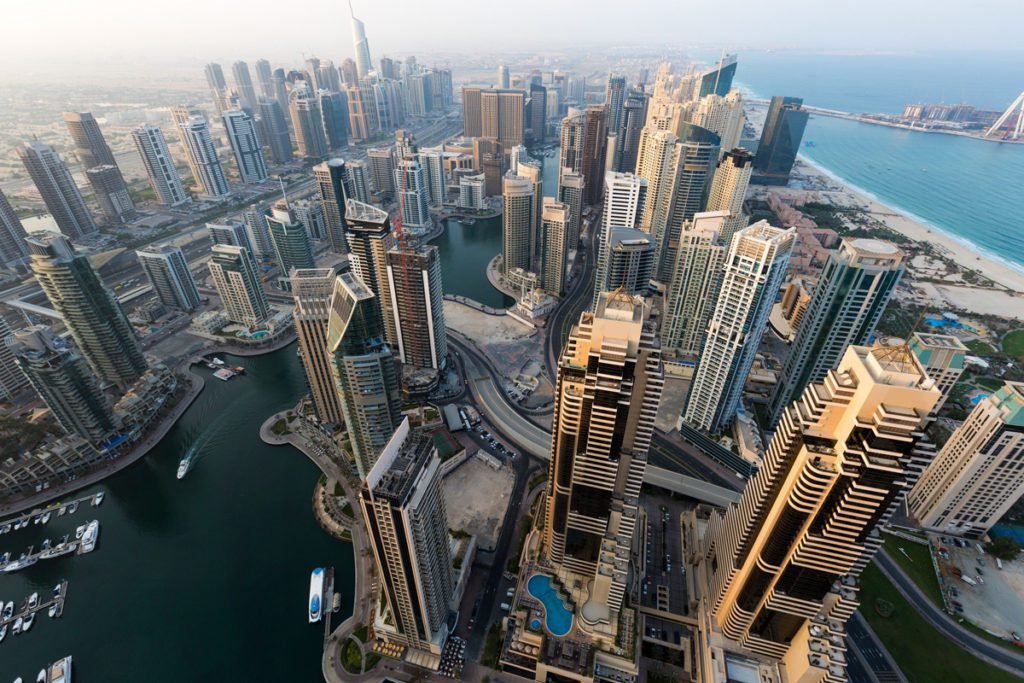The ‘liveability’ of Dubai is a huge selling point that needs to be leveraged to sustain the recovery of the property sector, according to Issam Kazim, CEO of Dubai Corporation for Tourism and Commerce Marketing (DTCM).
He also said that “the sales of properties in Dubai has skyrocketed… a UBS study showed that one of the most undervalued markets in the world right now for property is Dubai.”
Speaking at the 20th edition of the Cityscape Global summit, Kazim added: “There is sustainable growth and a lot of these analysts position Dubai as the place where they can actually see growth for people and businesses as well.”
In September, Dubai’s real estate market registered the highest value of sales for nearly eight years, according to figures compiled by Mo’asher, the emirate’s official sales price index.
“This has been a record year for the number of property transactions….I think so far 2021 has not only been overtaking 2020, which is not surprising, but also 2019 and 2018 as well,” he added.
The emirate recorded around 5,762 property sales transactions worth over AED16.2 billion in September, the most since December 2013, according to Mo’asher.
On the factors that are attracting foreign real estate investments, Kazim said: “The liveability aspect of Dubai is becoming a much stronger… this is a huge selling point and we’re leveraging it a lot more.”
“I think post-pandemic, a lot of people will choose one destination to stay in for a longer period of time as well,” he added.
In terms of the tourism and hospitality recovery, Kazim shared: “Dubai has rebounded stronger than before….we always want to be better than where we left things off from the year before.”
Dubai’s hospitality sector – like those around the world – was hit hard by Covid-19, but the sector is on the fast track to recovery, with hotels hitting 62 percent occupancy in the first half of 2021.
The UAE overall outperformed other global tourism destinations in the first half, including China (where hotels reached 54 percent occupancy), US (45 percent), Mexico (38 percent), the United Kingdom (37 percent), and Turkey (36 percent).
Supporting the tourism sector’s robust recovery, Kazim said: “The people’s appetite and the hunger to get back on a plane and go to another destination is apparent much more than ever…people realise that it’s one aspect of life that they might have taken for granted.”
He also referred to the pivotal role played by the private and public sectors and the value of their strong collaboration in accelerating the sector’s recovery.
Following a strict nationwide lockdown last year, the DTCM CEO believes that Dubai had “a first mover advantage” by being one of the first destinations to safely reopen, in which he said: “This was again solidifying our position as the number four internationally visited city in the world, as we get closer to being in the top three.”
“25 percent of our visitors that come to Dubai are repeat visitors, so they’re in Dubai more than once within a 12-month period… this shows that we have everything that tourists need,” he added.
With that, Kazim referenced the effectiveness of several UAE initiatives, such as the Retirement Visa and the Golden Visa in attracting foreigners, alongside the relocation of global brands in drawing in businesses and start-ups.
“Relocating global HQs, regional HQs, and family offices to Dubai became one of the key things that we pushed for,” he said.
District 2020, Expo 2020 Dubai’s legacy project, has been playing a key role in realising this commitment, becoming home to the world’s leading industrial, tech and logistics giants, including Siemens, Terminus and DP World.
“When you have big players like that making calculated decisions to relocate, that sends a message out globally that Dubai is the right place for them,” he added.
(Except for the headline, this story has not been edited by The Finance World staff and is published from a syndicated feed.)

